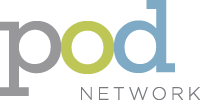The 48th annual POD Network conference envisions what the future of educational development might look like amid rapid changes in our lives, institutions, and societies. As educational developers, we are in a unique position to influence the success of faculty, students, institutions, and our own programs. By seeing our work through these multiple lenses, we seek a more holistic view of how educational development (see POD definition of Educational Development) can drive and facilitate the ongoing pursuit of equity in higher education. The POD Network is currently seeking proposals for the 48th annual conference.
Here are some questions for reflection to jump-start your submission:
- How do we define success? For faculty? For students? For ourselves?
- How do educational developers catalyze student success?
- How do educational developers advance their institution and center?
- How do educational developers envision success in our field?
As you develop your submission, please reflect on lessons learned, ways to expand inclusive and equitable teaching, the various implications of new technologies, assessment of teaching/learning/educational development, and how to prepare for the multitude of changes within the higher education landscape.
We’re bringing back the two conference venues, one in Pittsburgh and one online, with some improvements. We heard your feedback and are incorporating it into this year’s POD Network Conference. We look forward to your submissions and creating a conference experience to reflect our shared vision of educational development.
Please email the conference team with any questions you may have:

